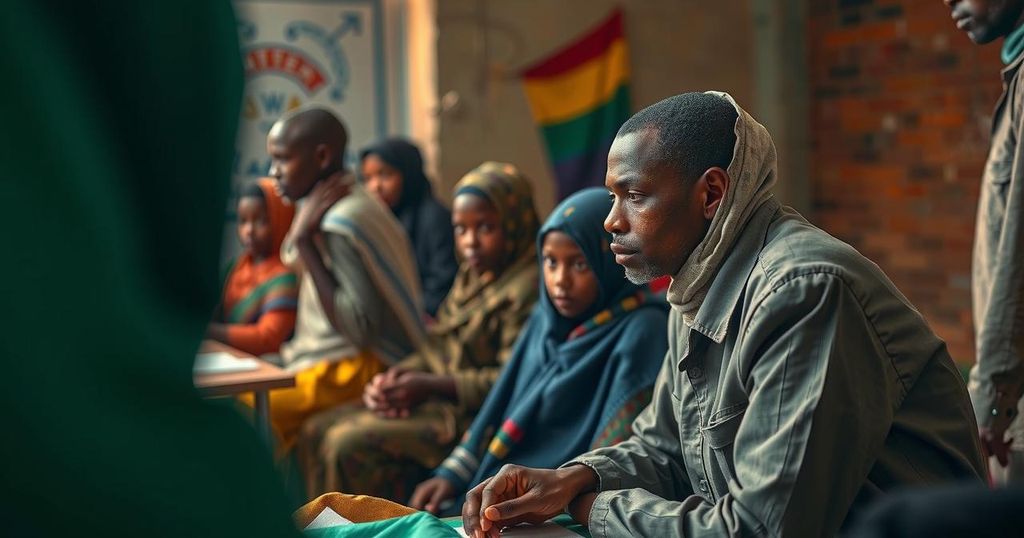Cholera and Dengue Fever Surge Amid War-Induced Humanitarian Crisis in Sudan
Sudan faces a humanitarian crisis with soaring cholera and dengue fever cases due to war and flooding. Over 28,000 cholera cases reported; 836 deaths noted. Approximately 80% of health facilities are impaired. Famine conditions persist in various camps, with significant acute malnutrition. Humanitarian efforts face severe challenges from ongoing conflict and resource shortages.
The ongoing conflict in Sudan has precipitated a severe humanitarian crisis that is compounded by the emergence of cholera and dengue fever epidemics. Reports indicate that over 28,000 cholera cases have been recorded, alongside 836 deaths across 11 states from late July to late October, with the Ministry of Health confirming a resurgence of cholera due to heavy rains and flooding. Health facilities are largely incapacitated, as up to 80 percent are either non-functional or limited due to ongoing hostilities and resource shortages, complicating the country’s efforts to address these public health crises.
Humanitarian organizations, including the UN Office for the Coordination of Humanitarian Affairs (OCHA), have warned that food security continues to deteriorate, with reports indicating that hunger levels are above the famine threshold in various regions, notably in the Zamzam internally displaced persons camp. Acute malnutrition remains a pressing concern, with humanitarian supplies hindered by conflict-related blockades. These alarming trends extend to confirm famine conditions in Zamzam camp and signal potential crises in areas such as Dilling and Kadugli.
The cholera outbreak has been exacerbated by widespread flooding, particularly in Kassala state, which has recorded the highest incidence of the disease. Dengue fever cases have also surged, straining Sudan’s already overwhelmed healthcare system. The WHO has highlighted that attacks on healthcare facilities have escalated, resulting in numerous casualties among medical professionals and jeopardizing the treatment and services available to those in need. A vaccination drive aims to counter these infectious diseases, targeting approximately 1.4 million vulnerable individuals in affected areas. Yet, with millions of people displaced and many facilities out of operation, the response to these concurrent crises remains precarious.
The ongoing war in Sudan has decimated both infrastructure and healthcare capabilities throughout the nation, laying the groundwork for compounded health crises such as cholera and dengue fever outbreaks. The country is in a state of emergency as humanitarian conditions worsen; international agencies are raising alarms around the growing incidence of these diseases combined with extreme hunger across many regions. With significant parts of the healthcare system rendered ineffective, the situation for affected populations remains dire and urgent actions are being called for to mitigate further deterioration.
In summary, the humanitarian situation in Sudan is critical as war ravages healthcare systems, fueling outbreaks of cholera and dengue fever amidst a backdrop of severe food insecurity. Health facilities remain largely disabled leading to increased rates of preventable diseases, and urgent measures are required to address this escalating crisis. The international community, alongside local organizations, must innovate and expedite their responses to mitigate the consequences of this tragic situation.
Original Source: news.un.org




Post Comment